author of Honorable Influence - founder of Mindful Marketing
In online entertainment, where content is king, Netflix’s original series Bridgerton, about the lives of Regency-era nobles, has risen above the populace to become a royal success. Other period pieces like Game of Thrones and The Crown also have shown viewers’ appetites for aristocracy, but Bridgerton is different in one very visible way.
Playing the roles of English nobles and others, people of color are many of the series’ leading actors, for instance: Regé-Jean Page, Ruby Barker, Jason Barnett, Martins Imhangbe, Sandra Teles, Anand Desai-Barochia, and Golda Rosheuvel. In fact, Rosheuvel plays one of the show’s highest-ranking royals, Queen Charlotte.
Although some believe that the real Queen Charlotte “descended from a Portuguese branch of nobility with African ancestry,” even a casual royal-watcher knows that the bloodlines of English nobles are rather consistently Caucasian. So, to see persons of color playing the parts of dukes and duchesses is at least surprising, and some might say ‘historically inaccurate.’ Either way, Bridgerton begs the question:
Should an actor of one race portray a person of another?
First, it’s important to recognize that Bridgerton is not exactly breaking new ground. A few months before COVID closed the curtain on live performances, my wife and I had the privilege of visiting Philadelphia and seeing one of the best examples of diverse casting: Hamilton. The musical mega-hit features many people of color portraying individuals who in reality were white, e.g., George Washington, Thomas Jefferson, Aaron Burr.
However, actors were crossing racial lines long before Hamilton hit Broadway in 2015. In fact, it’s easy to find such film examples over the past century, and it’s worth noting that in most cases the roles were reversed, i.e., white actors played either real or fictitious people of color, for example:
- Angelina Joline as Mariane Pearl in A Might Heart
- Ben Affleck as Antonio J. Mendez in Argo
- Joseph Fiennes as Michael Jackson in Elizabeth, Michael, and Marlon
- Mickey Rooney as Mr. Yunioshi in Breakfast at Tiffany’s
- Laurence Olivier as Othello in Othello
- Natalie Wood as Maria in West Side Story
- Johnny Depp as Tonto in The Lone Ranger
- Katharine Hepburn as Jade in Dragon Seed
- Elizabeth Taylor as Cleopatra in Cleopatra
- John Wayne as Genghis Khan in The Conqueror
So, what issues are really at stake when it comes to actors’ racial representations?
The most obvious seems to be historical accuracy. Participants’ personal identities (racial, ethnic, gender, etc.) are important for understanding past events and how they impact us today. For instance, it would be dishonest to depict WW II’s Tuskegee Airmen as Asian, Hispanic, or white, when almost all the squadron’s aviators were Black. Doing so also may steal a sense of pride from African Americans today.
However, does that same need for ‘identity accuracy’ apply to entertainment? Not necessarily. When we watch a television series, a feature film, or a Broadway show, we know that the actors are not the actual people—it’s a morally-acceptable accommodation that Alec Hill calls “mutual deceits.” Play-goers understand that Lin-Manuel Miranda is not actually Alexander Hamilton. They know that he's just pretending to be him for a few hours.
The same logical likely applies to Bridgerton. Even though some of the show’s characters were real people, like Queen Charlotte, it’s okay for people of other races to portray them, because it’s a largely fictional series that viewers know is taking creative liberties and not purporting to be very factual.
However, that artistic license shouldn’t be wielded with impunity. There still need to be standards, particularly related to portraying people in ways that reasonably represent who they are or were.
If an actor ever played me in a movie, which will certainly never happen, I’d be less concerned that the actor looked like me and more concerned that he acted like me. No one alive or deceased deserves to have their character defamed, which is an issue I’ve written about on several other occasions:
- Dignity for the Deceased
- I Have a Sale?
- Live Streaming Funerals
- Why Negative Political Advertising Works & What Can Stop It
Accuracy consistent with the nature of the artistic creation (e.g., comedy vs. drama) is certainly important, but two other race-related factors also deserve consideration:
- Opportunities: While it’s convenient to conclude that white actors can portray people of color and vice versa, that generalization fails to account for centuries of discrimination that have often kept from racial minorities opportunities afforded others, including work in acting. To help overcome that historical disparity, a case can be made that persons of color should receive added consideration for acting roles.
- Representation: Similarly, it’s encouraging for people of any race, ethnicity, or gender to see themselves represented in desirable occupations. Acting is such a profession for many, but even more, actors paint pictures of career possibilities with each profession they portray, from A–accountants to Z–zookeepers.
Realizing that my own background and identity influence my thoughts on this issue, I asked an astute student of mine, Mikayla Broome, who is a person of color, to share her perspective. Not surprising, she offered insights that hadn’t occurred to me.
Mikayla first disclaimed that while Bridgerton seemed intriguing, her impressions of the show came mainly from seeing its trailer. She hadn’t watched any episodes because of their graphic sexual content—a good call that may be reason for future Mindful Marketing analysis.
In addition, she suggested that although she understood others’ affection for the show’s racial diversity, the setting in Regency-era England made the series seem "unrealistic" to her. In keeping with that sentiment, she would “have no problem with white actors depicting the characters.” She emphasized that was her personal opinion and she respected those whose attitudes differed.
Each of these reflections were instructive to me, but it was something else Mikayla shared that I found especially enlightening:
“I would be much more interested in a show depicting the lives of people of color in their own culture . . . like the royalty in Benin, Nigeria, the Tang dynasty in China, the Gupta dynasty in India, or Arsinoe the princess of Egypt. People of color love to see themselves represented on the big screen with cultural accuracy. We have such rich histories that I see no need to insert us into stories that are not ours.”
Again, Mikayla emphasized that her personal opinion didn’t negate the potential value of diverse casting like that described above. However, she rightly suggested that the bar should be set higher.
In the category of fiction, Disney has taken significant diversity strides with feature films like Mulan, Moana, and Coco. However, there also are so many inspiring stories to tell of real-life heroes from underrepresented people groups, such as those shared in Hidden Figures, The Boy Who Harnessed The Wind, and a Ballerina’s Tale—a documentary about Misty Copeland, the first black female principal dancer of a major international ballet company.
One might think that films featuring real-life diversity are kind-hearted charity works that do good socially but not well financially. According to research by UCLA’s Center for Scholars & Storytellers, that characterization is not the case. In analyzing 100 films released from 2016 to 2019, the study found that “films with diverse characters and authentic stories actually make more money at the box office.”
Interestingly, Mikayla is double-major in Dance and Business Administration. Perhaps her future will in some way involve bringing to light real-life stories of underrepresented people.
Lives are stories that intertwine to create a rich tapestry of tales that marketers and others need to tell well. At the same time, they should seek opportunities to share more real-life stories born from backgrounds of diversity.
In entertainment, it’s sometimes okay to recolor history, but it’s even better to depict individuals and events just as they were. Regardless how one might classify Bridgerton, true stories told accurately are more often “Mindful Marketing.”
Learn more about the Mindful Matrix.
Check out Mindful Marketing Ads and Vote your Mind!

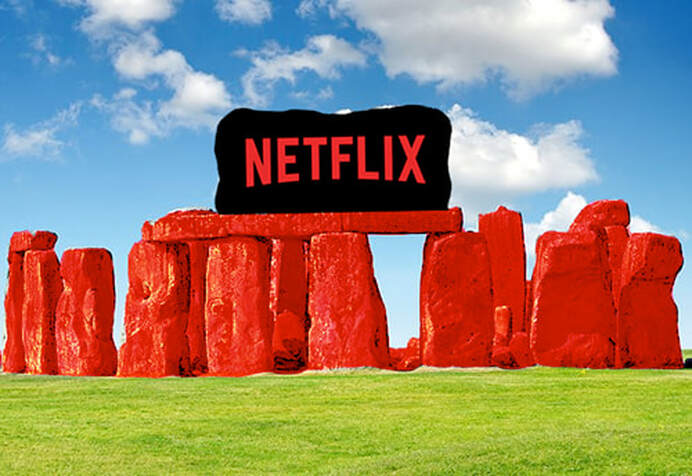
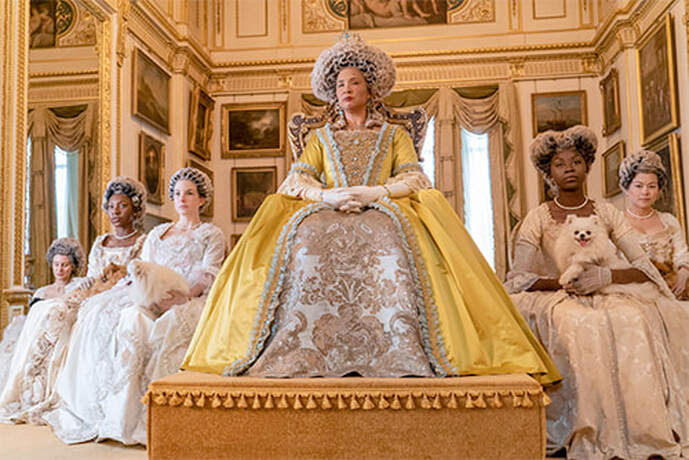
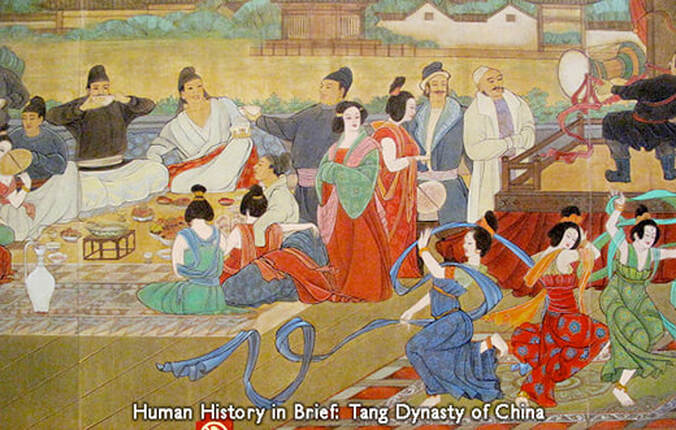
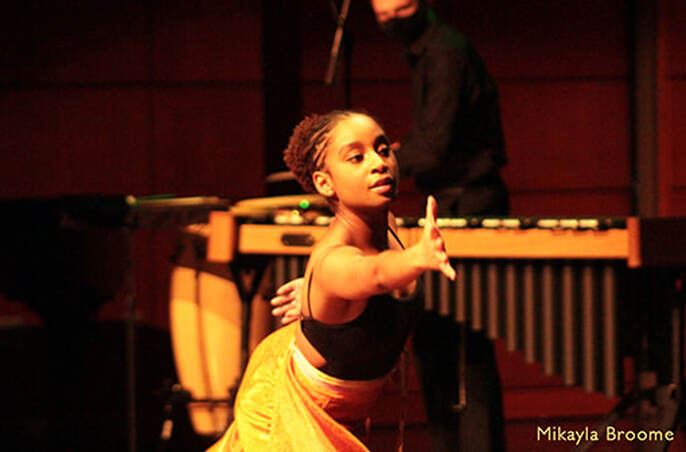
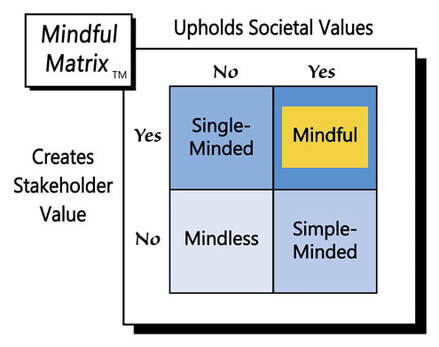
 RSS Feed
RSS Feed